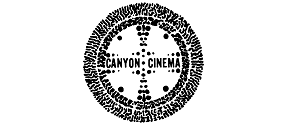Now Available: 14 Digital Files from Alexis Krasilovsky
Posted February 24th, 2022 in Announcements, New Acquisitions, New Digital Files, News / Events
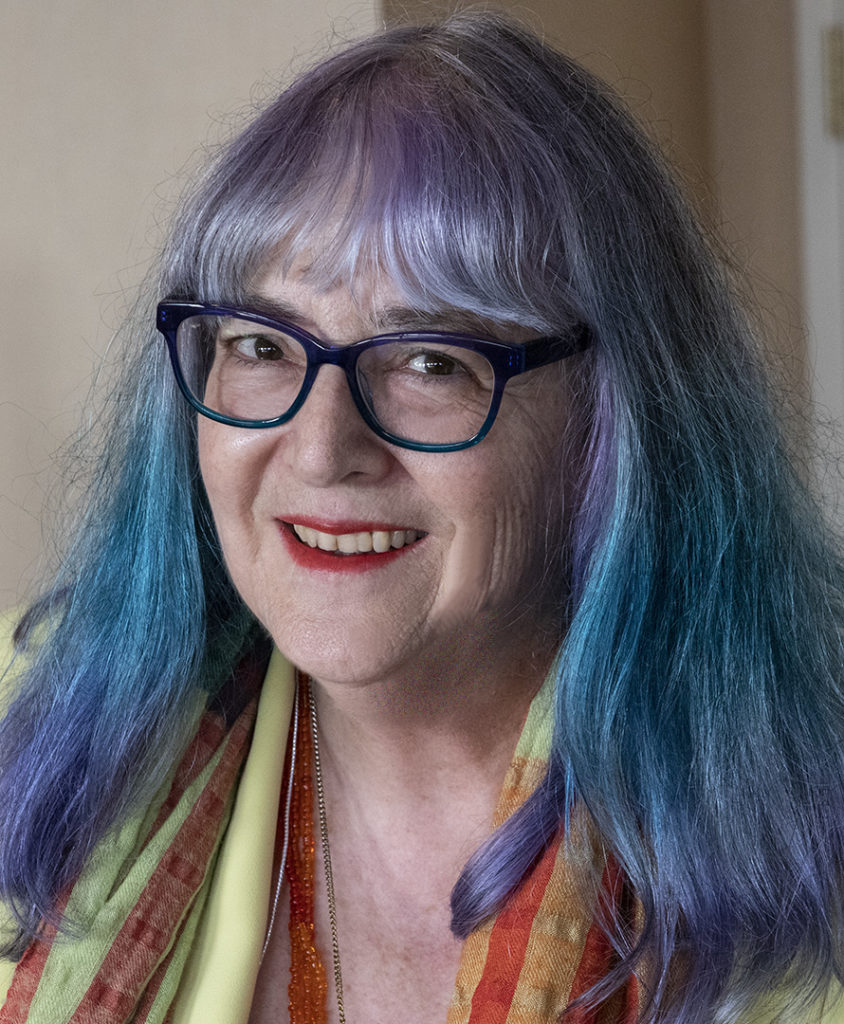
Canyon Cinema is pleased to announce the arrival of 14 exhibition files from the Los Angeles-based filmmaker Alexis Krasilovsky! As head of her own production company – Rafael Film, LLC – Krasilovsky has written, directed, and produced numerous documentaries, video-poems, and art films. Her global documentary feature, Women Behind the Camera (and the shorter version, Shooting Women – both at womenbehindthecamera.com), won five Best Documentary awards, as well as a Tribute Award “for achievement in independent cinema” from the San Francisco Women’s Film Festival and a lifetime achievement award from the Gdansk DocFilm Festival. For more info: www.alexiskrasilovsky.com
Included amongst this new acquisition are digital files for four films that were previously available from Canyon – Blood (1975), Inside Story (1983), Exile (1984), and What Memphis Needs (1991) – as well as the following ten works that are new to the collection:
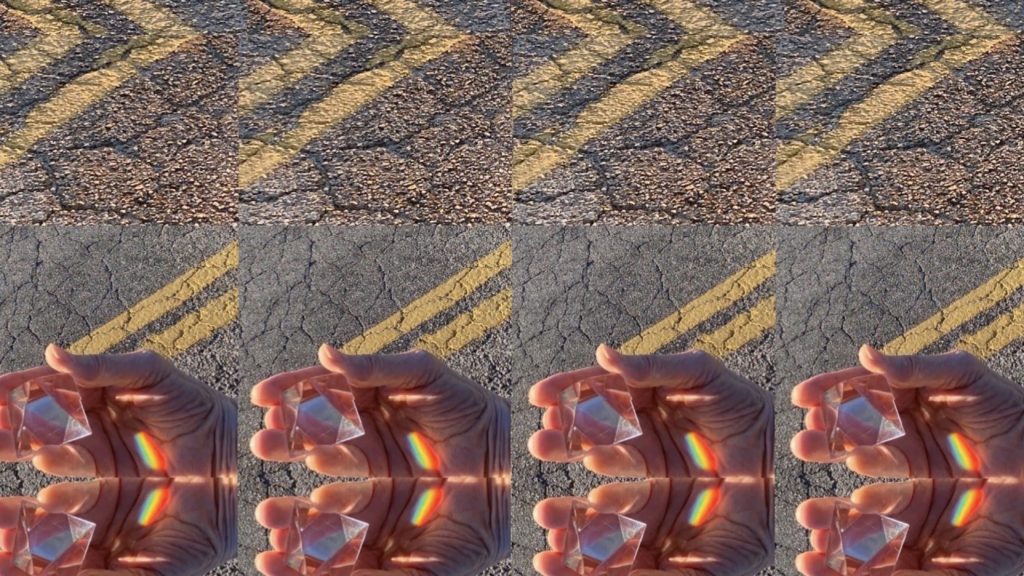
The Parking Lot of Dreams (2021, 7 minutes, color, sound, digital file)
The Parking Lot of Dreams incorporates poetry written during and about the pandemic, as well as photocollages created by the filmmaker from many solitary walks in a place without people.
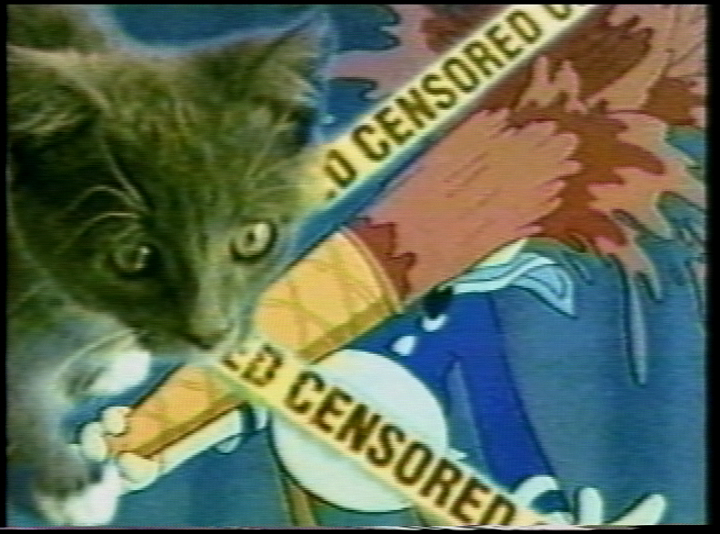
Camp Terezin (1999, 5 minutes, color, sound, digital file)
This video poem mixes reappropriated footage shot in Terezin Concentration Camp in 1944 with contemporary footage of American children and their drawings that honor the children of the Holocaust. Camp Terezin also makes fun of Disney by comparing its characters and Disneyland visitors to inmates of a concentration camp. A few weeks after composing “Sonata No. 7 for Piano,” which is also on the soundtrack, Viktor Ullmann, an Austrian of Jewish descent, was taken to Auschwitz, where he died in the gas chamber. About Terezin, Ullmann wrote, “our desire for culture was a match for our desire for life.”
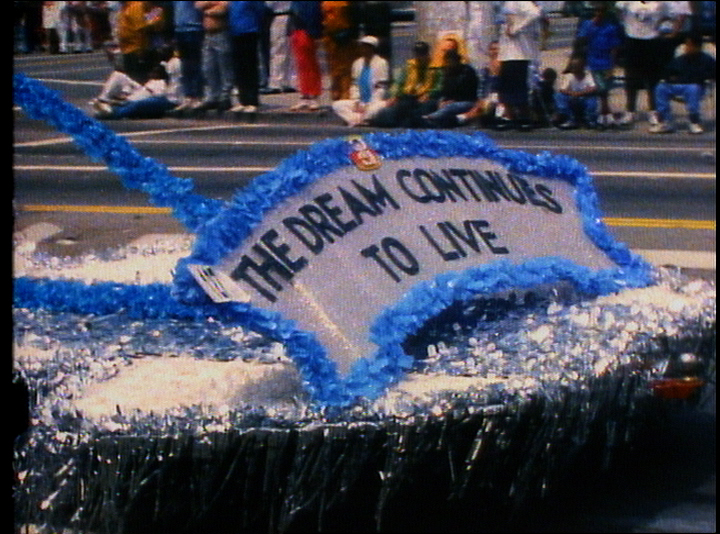
The Earthquake Haggadah (1995, 4 minutes, color, sound, digital file)
Linking natural disaster to the personal disasters in our lives, this Passover celebration is a videopoem excerpted from the film Epicenter U., based on the 6.7 earthquake of January 17, 1994.
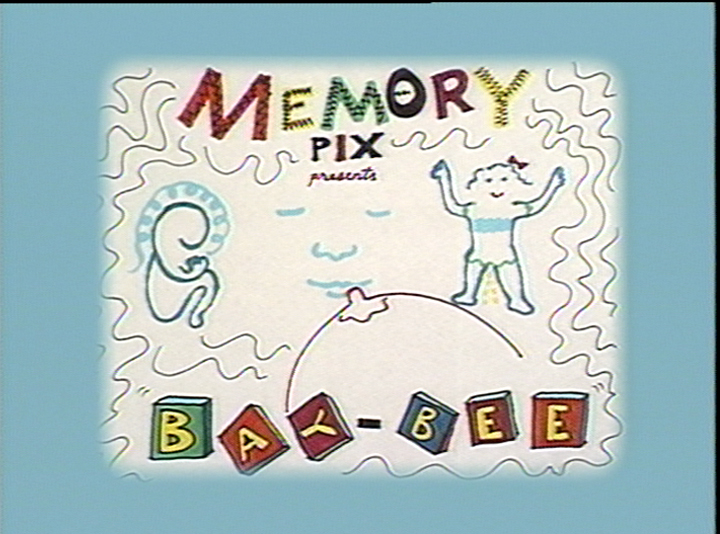
Bay-Bee (1988, 2 minutes, color, sound, digital file)
A sonographic videopoem for my son, featuring Thomas Finney in utero. Based on Alexis Krasilovsky’s poem, “You Will Exist,” from the chapbook Some Women Writers Kill Themselves (Los Angeles: A Street Agency Publication, 1983, 1985).
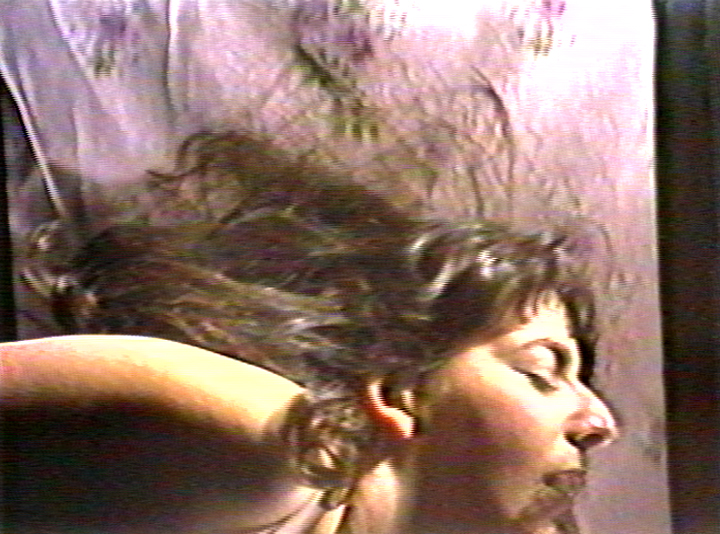
Valium Blues (1983, 1 minute, color, sound, digital file)
A videopoem about valium, combining imagery of the poet and animated pills.
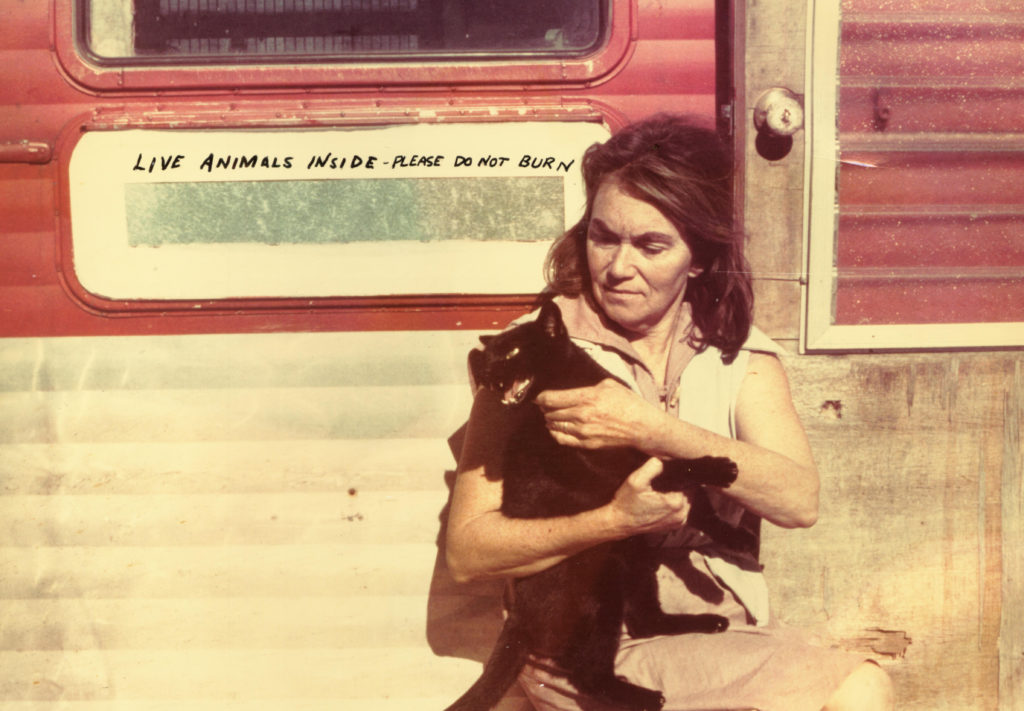
Just Between God and Me (1982, 8 minutes, color, sound, digital file)
In this environmental love story from West Memphis, Arkansas, a fisherman and his wife and the Mississippi River wildlife they love are pitted against both the construction of a drag race track and a raging chemical fire. Eleanor and Will Roberge call this precarious spot of beauty on the edge of Memphis’ industrial ruins “Innisfree.”
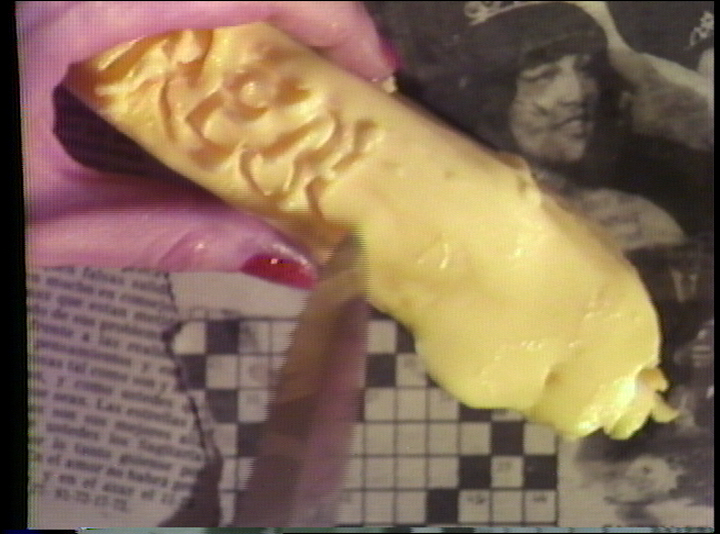
ReButter (1979, 2 minutes, color, sound, digital file)
ReButter addresses the slippery problem of women artists who can’t afford their own art studios but want to be taken seriously for their art, regardless.
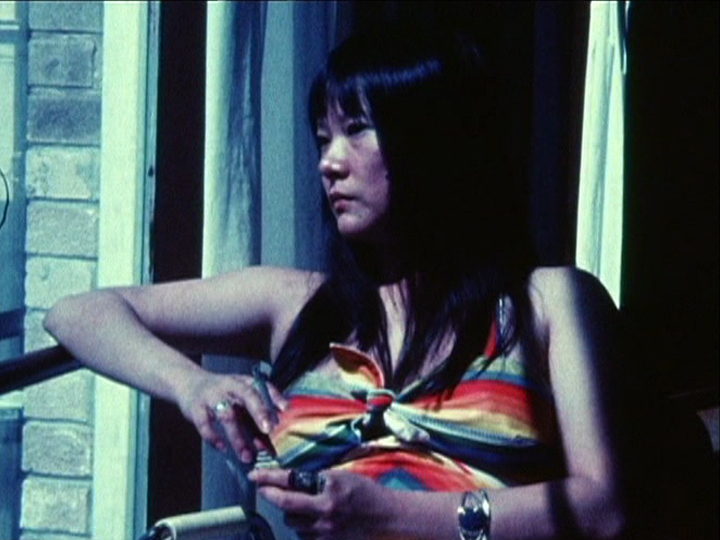
Commiseration Moon (1976, 6 minutes, color, sound, digital file)
A cinepoem for women driven to the ground by love, Commiseration Moon stars the founder of Women & Film, Siew Hwa Beh, and poet Tom Cuson, former head of the Coffee Gallery poetry series in San Francisco. A poem from the soundtrack, “The Wet Umbrella,” was published in Filmnotes, Melbourne, Australia, Summer 1977.
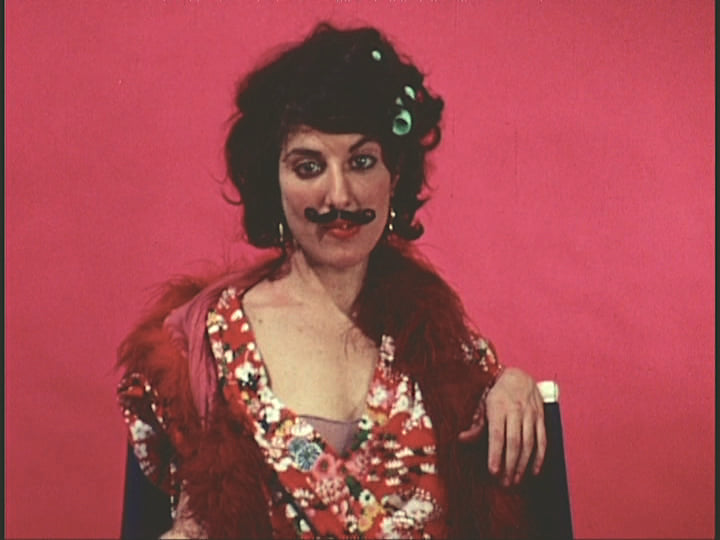
Guerrilla Commercial (1973, 1 minutes, color, sound, digital file)
What is it called when you run a women’s film festival for one month, and show almost nothing but films by men the other eleven months of the year? Guerrilla Commercial protests discrimination faced by women filmmakers during the 1970s. Programmed without preview as part of Krasilovsky’s first retrospective, held at the Whitney Museum on March 9, 1973, in a women’s film festival entirely run by men, Guerrilla Commercial is the film the Whitney wanted to burn.
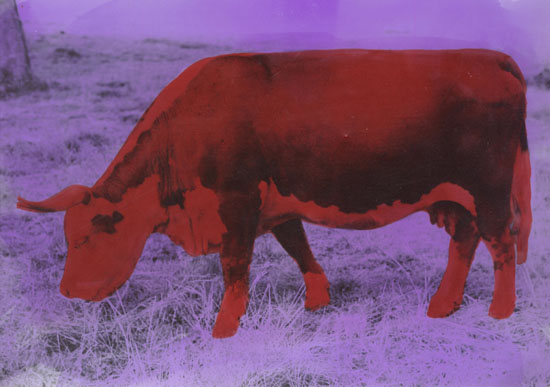
Cows (1972, 3 minutes, color, sound, digital file)
A feminist film about cows made in the heart of America’s conservative dairyland.
